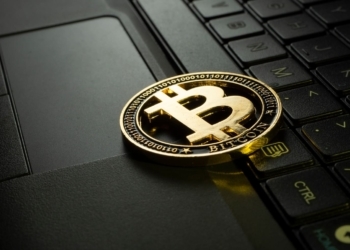Ukraine Government Demanding Financial Information
In a surprising twist, Ukraine government has turned its attention to the local cryptocurrency sector, demanding detailed financial information from several crypto firms. The National Bank of Ukraine (NBU) recently issued a request to four local crypto companies – Kuna, CoinPay, GEO Pay, and Qmall – instructing them to submit their financial statements for the first two quarters of 2023 within a tight seven-day deadline.
The news about the NBU’s request surfaced through Michael Chobanyan, the founder and CEO of Kuna exchange, who shared the information on July 3. A document outlining the NBU’s demand was apparently circulated by the Ukrainian Telegram news channel “Politics of the Country.”
Beyond mere financial statements, the NBU has also demanded additional data, seeking insights into the crypto businesses’ operating volumes and specific details about fund reception and transfer. The government body has even gone further to request statements for all accounts since the beginning of 2023.
Michael Chobanyan confirmed the authenticity of the NBU’s action on his personal Telegram channel, yet he remained puzzled about the reasons driving this unexpected move.
He emphasized that such a request for information has never occurred before in Ukraine, even tracing back to the year 2015, which is even before Kuna’s establishment. The motives behind the “so-called” government’s decision have not been made explicitly clear. However, Chobanyan couldn’t overlook recent events, including exchanges across Ukraine facing searches, triggered by the combined actions of the NBU, Ministry of Internal Affairs, and the Security Service of Ukraine. He suggested that these searches might only be the beginning.
Attributing the decline in Kuna exchange’s fortunes to the NBU’s relentless actions, Chobanyan disclosed that they had pulled their business-to-customer market out of Ukraine as early as March 2023. He expressed frustration with what he views as the NBU’s consistent effort to suppress Ukraine’s crypto and Web3 potential, leading to a significant 90% reduction in Kuna’s exchange volumes in recent months. To add to their challenges, Kuna had already faced a 60% drop in volumes following their exit from the Russian market back in February 2022.
Amidst these trying times, Chobanyan, however, remains optimistic and sees a glimmer of hope in the government’s latest actions.
“We are now shifting our focus to the European market, particularly the b2b sector,” he revealed, highlighting the recent launch of Kuna’s crypto acquiring service, KunaPay. While he’s unsure about the possible link between this launch and the NBU’s actions, Chobanyan expressed gratitude for the push that compelled Kuna to aspire to become a successful European company, transcending its earlier role as a niche player confined to the Ukrainian market.
The unfolding scenario in Ukraine’s crypto industry underscores the challenges and opportunities presented by evolving regulatory dynamics and government interest in the crypto space.












Discussion about this post